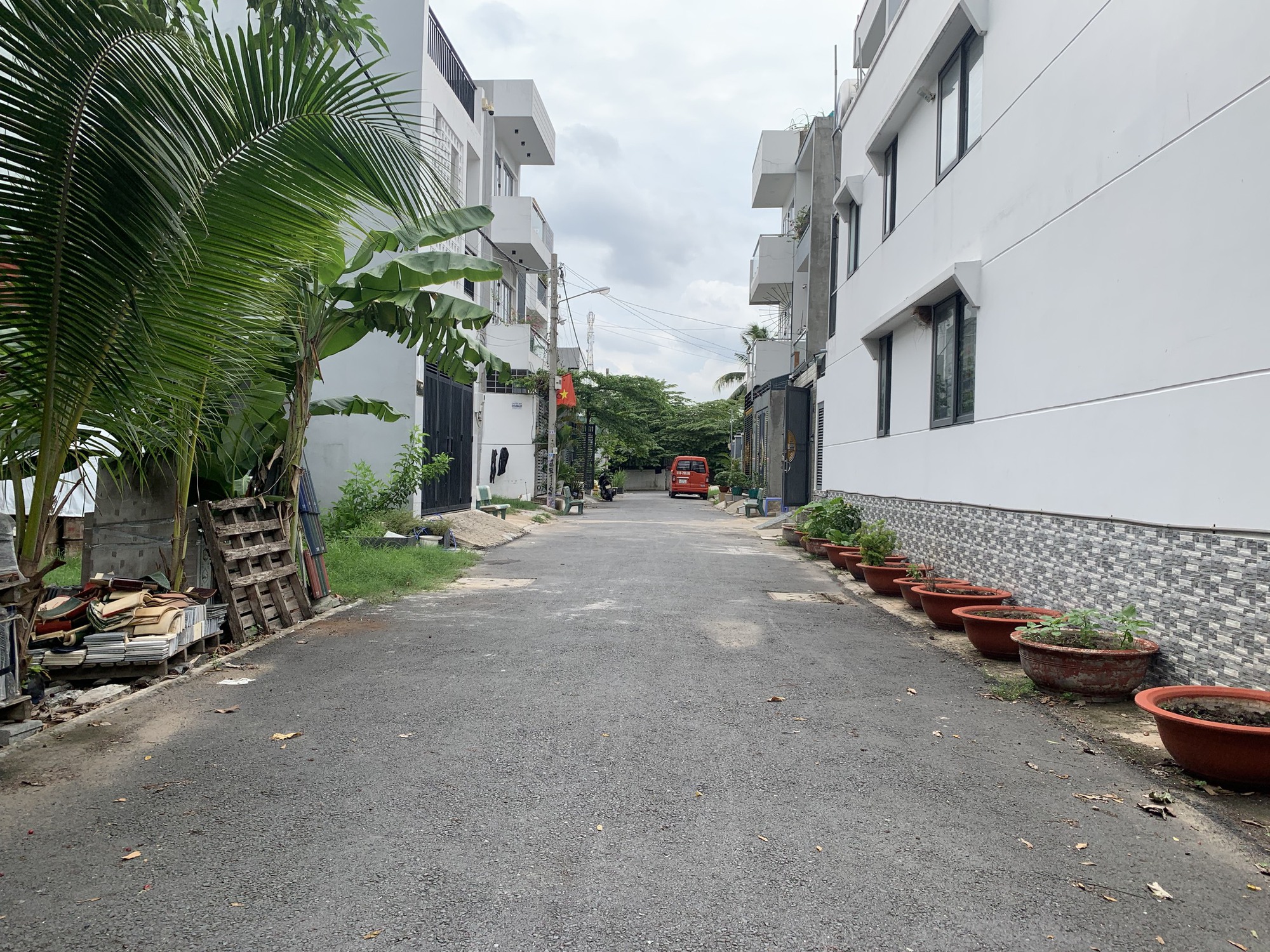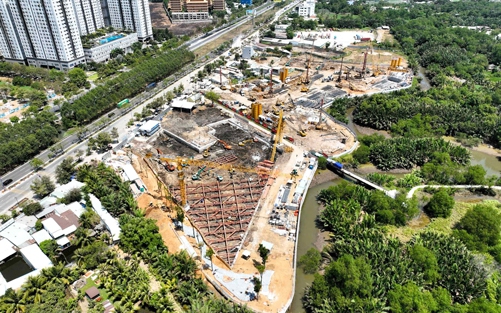The recent Government Decree No. 101/2024/ND-CP on regulations for land-use right registration and the issuance of land-use right and asset ownership certificates (pink books) is welcome news for homeowners in planned areas.
Synchronized and Unified Implementation
Mr. Tran Dinh Quan, Director of Thu Duc City’s Branch of the Office of Land Registration (Ho Chi Minh City), shared that they have dispatched an official dispatch to the People’s Committees of 34 wards within its jurisdiction regarding the registration of assets attached to land plots with issued certificates or the registration of changes in assets attached to land with temporary construction permits for households and individuals (referred to as completion dossiers).
To ensure synchronization and uniformity in confirming completion dossiers, the Thu Duc City Branch of the Office of Land Registration will handle registration changes for completion dossiers with temporary construction permits according to the regulations stipulated in Point a, Clause 1, Article 148 and Point d, Clause 2, Article 151 of the 2024 Land Law.

A residential area with a temporary construction permit in Hiep Binh Phuoc Ward, Thu Duc City
The Thu Duc City Branch of the Office of Land Registration requested the cooperation of the People’s Committees of the 34 wards in inspecting the status and comparing the construction with the temporary construction permit before the Thu Duc City Branch of the Office of Land Registration proceeds with registration changes as per Decree No. 101/2024.
At the same time, the branch office urged the People’s Committees to disseminate this information to the public. For guidance on completing and submitting completion dossiers for houses constructed according to temporary construction permits as mentioned above, please contact the reception and result retrieval area of the Thu Duc City Branch of the Office of Land Registration (56 Dang Nhu Mai, Thanh My Loi Ward, Thu Duc City).
Need for Swift Implementation
In Ho Chi Minh City, there is a high demand for housing construction, including in planned areas. To address this, in 2017, the Ho Chi Minh City People’s Committee issued Decision No. 26/2017/QD-UBND, regulating several aspects of construction permitting within the city. Accordingly, separate constructions or private houses in areas with a 1/2000 scale planned subdivision, which has been approved and announced by competent state agencies but not yet implemented or subject to land retrieval decisions, are eligible for temporary construction permits for repair, renovation, and construction of separate constructions or private houses, with a maximum scale of three floors, following the previous land-use purpose.
However, in reality, homeowners were unable to legalize their properties after construction. This was due to the regulations stipulated in Article 31 of Decree No. 43/2014/ND-CP, which states that one of the conditions for obtaining a certificate of homeownership is having a construction permit for cases where a permit is required by law. As a result, residents in planned areas were hesitant to build permanent structures as there was a risk of losing their homes and investments if the project was implemented.

The real estate market is gradually warming upREAD NOW
Subsequently, Decree No. 148/2020/ND-CP, which amends and supplements several decrees detailing the implementation of the Land Law, approved temporary construction permits as one of the conditions for completing the procedures for completion certification (pink book) for residents. In cases where the constructed house deviates from the granted construction permit, there must be a written confirmation from the competent construction permit-granting agency stating that the area constructed without a permit does not affect the safety of the project and is now in line with the approved construction planning. This decree brought good news to homeowners with temporary constructions. However, challenges and obstacles remained in the implementation process, preventing the resolution of residents’ concerns.
According to the director of a land registration office in a rapidly urbanizing locality within the city, there have been difficulties and obstacles in implementing the procedures for completion certification (pink book) for residents who constructed houses according to Decision No. 26/2017/QD-UBND of the Ho Chi Minh City People’s Committee. Regarding the implementation of Decree No. 101/2024/ND-CP within the city, there is currently no implementation procedure, and they are awaiting guidance from higher authorities.
The leader of another land registration office branch added that Decree No. 148/2020/ND-CP approves temporary construction permits as one of the conditions for completing the procedures for completion certification. However, this is not stipulated in the 2013 Land Law, leaving no basis for implementation. The decree only modifies the “branch” without addressing the “root.”
Mr. Le Nguyen Phuong, a resident of Thu Duc City, expressed his delight at the early implementation of Decree No. 101/2024/ND-CP, effective from August 1. He suggested that city authorities coordinate synchronously and promptly to guide the branches of the Office of Land Registration in receiving and handling completion dossiers to grant “pink books” to residents who constructed houses with temporary permits.
For many, a house represents legal assets and years of hard-earned savings. Therefore, legalizing homes under the new regulations demonstrates fairness, especially for residents in “stalled” planned areas who have endured numerous disadvantages.
Over the past 20 years, the Ho Chi Minh City People’s Committee has issued numerous decisions on temporary construction permitting in planned areas: Decision No. 217/2004, Decision No. 04/2006, Decision No. 68/2010 (promulgating regulations on construction permitting and management of construction according to permits within the city); Decision No. 21/2013, Decision No. 21/2014 (detailing several contents of construction permitting within the city); and Decision No. 26/2017 (regulating several aspects of construction permitting within the city).















